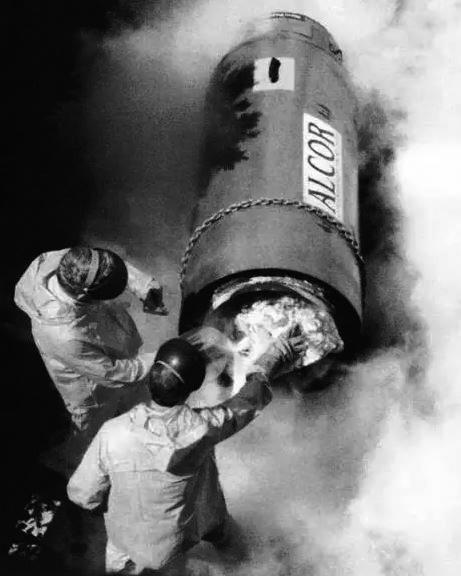In May 2024, researchers from Fudan University in China announced that they had successfully developed a method using specialized inhibitors to freeze and preserve various brain organoids or human brain tissues, allowing for the "frozen" human brain to function normally after being taken out and thawed after 18 months. Currently, it is reported that hundreds of individuals worldwide have chosen to have their bodies frozen, hoping to be eventually "revived" in the future, but there are still no successful cases to date.

First case of "froze individual" (File Photo)
In 2018, scientists succeeded in reviving ancient roundworms that had been frozen for thousands of years in Siberia's permanently frozen ground. Additionally, some higher organisms, such as frogs, snakes, and bears, can hibernate and survive at extremely low metabolic rates. The North American wood frog, who spends nearly eight months hibernating every year, can survive being frozen for two months at -4 °C.
But can humans be frozen for thousands of years and then revived, just like roundworms? At this point, it still seems unrealistic.
As warm-blooded animals, humans are unable to dehydrate as quickly as cold-blooded animals can, nor can they regulate the concentration of "cryoprotectants" in their bodies. A drop in human body temperature can lead to serious problems, making it impossible to minimize metabolic functions effectively. Even if the survival rate of cells after being "frozen and thawed" is as high as 99%, containing nearly 86 billion neurons, the human brain would still lose about 860 million neurons and potentially impact its intricate functions. Therefore, judging from the current technology level, it is still not possible to "revitalize" human beings after they have been "frozen".
In May 2024, Dr. Shao Zhicheng and his team at Fudan University announced that they had successfully thawed and restored a human brain to normal vitality after freezing it for 18 months without damaging neuronal structures or affecting neural functions, through their new method "MEDY," which involves the usage of a selective inhibitor to preserve brain organoids and human brain tissues. This method can protect synaptic function and inhibit endoplasmic reticulum-mediated apoptotic pathways, allowing large-scale and reliable storage of a wide range of neurological organoids and living brain tissues.
Currently, the United States has two major human cryopreservation companies, which report that hundreds of individuals worldwide have been authorized to freeze their bodies in liquid nitrogen at -196°C, awaiting potential future"revival." However, there have been no successful thawing cases to date. Most of the "frozen individuals" were elderly and some suffered from terminal illnesses, which often further reduces the likelihood of successful thawing.
In a word, to fulfill the aspiration to achieve human "revival" through "freezing and thawing", we still have a long way to go, in terms of technology, ethics, and legal considerations. (Source: China Science Communication)
Source: Lingnan on the Cloud
















